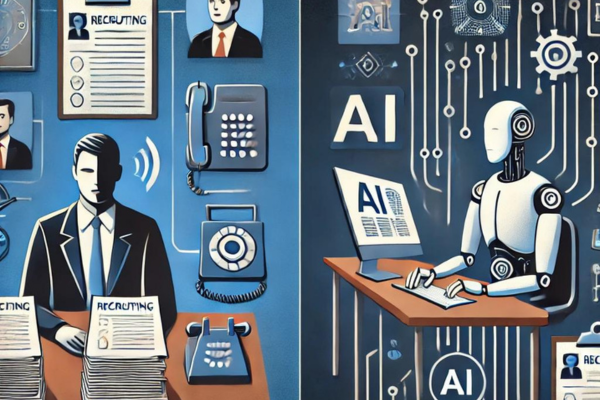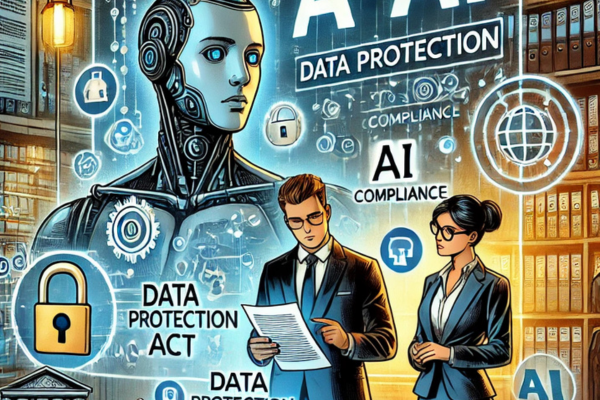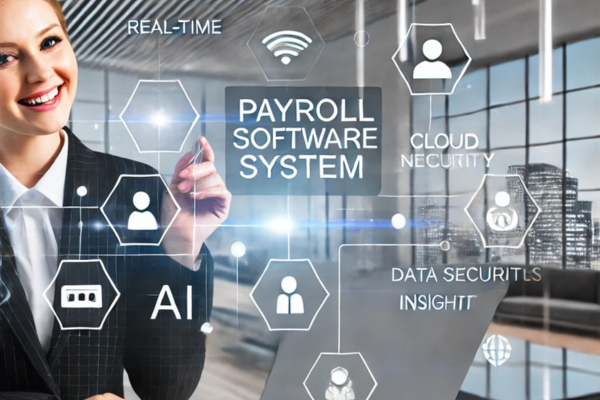An interview with Jurgen De Jonghe, Portfolio Manager Group Data, SD Worx/Belgium
The world of HR management is facing massive change. Artificial Intelligence (AI) is playing an increasingly important role, especially in payroll and HR. To find out more about these exciting developments, I interviewed Jurgen De Jonghe, Portfolio Manager Group Data at SD Worx, Belgium, in episode 8 of my podcast (DER PAYROLL PODCAST). In our conversation, he shares valuable insights into how AI is revolutionising HR departments, and the opportunities and challenges it brings.
Sabine: Jurgen, thank you very much for taking the time for this interview. Let’s jump right in. AI is developing rapidly. What role do you think it will play in HR?
Jurgen De Jonghe: Very much so! AI definitely has the potential to make a big difference in HR. It allows us not only to analyse data, but also to identify patterns and correlations that were previously invisible. This helps us make more informed decisions. But we also need to be aware of the risks. AI can be a game changer, but clear ethical guidelines are needed to ensure it is used responsibly.
Sabine: You mentioned in our conversation that AI is already widely used, especially in operational processes. Can you give us an example?
Jurgen De Jonghe: Absolutely. A good example is workforce planning. For one of our customers in France, AI was able to predict exactly how many people would be needed in a certain region at a certain time. By predicting the workload, they were able to hire people early and avoid reacting too late. This saves not only time, but also resources.
Sabine: That sounds impressive! What challenges do you see in the application of AI in HR?
Jurgen De Jonghe: One of the biggest challenges is certainly data quality. Without high-quality data, even the best AI can’t do much. What’s more, HR data is sensitive. We have to ensure that data protection is always guaranteed, especially with regard to the GDPR. Another issue is the ethical dimension – who ultimately makes the decisions? Is it the human or the machine? Transparency is crucial here.
Sabine: Data protection is definitely a big issue, especially in an international context. How does SD Worx deal with this challenge?
Jurgen De Jonghe: Data protection is our top priority. We work with secure cloud solutions and ensure that our customers’ data is always protected. A good example is our ‘Insights Cloud’ system, which enables companies to securely analyse their HR data while complying with all legal requirements. We also rely on anonymisation when using benchmarking data to ensure that sensitive information is never disclosed.
Sabine: That sounds like a well thought-out approach. How do you see the future of AI in HR, especially in light of the new EU AI law?
Jurgen De Jonghe: I see the law as a positive step. It sets clear framework conditions for what companies can and cannot do. This is important in order to build trust in the technology. Even though we are still in a learning phase, I am confident that these regulations will help to promote the responsible use of AI in the long term. It will be exciting to see how AI will continue to grow over the next few years.
Sabine: Finally, what advice would you give to companies considering the use of AI in HR?
Jurgen De Jonghe: My most important piece of advice would be to get to grips with AI now and start experimenting. It’s never too late to start, but you shouldn’t miss the boat. AI will be an integral part of HR in the future, just like email or Excel are today. The sooner you understand the possibilities and limitations of the technology, the better you can utilise it for your own goals.
In a nutshell: AI is the key to efficiency in HR
The interview with Jurgen De Jonghe shows that AI is already playing a decisive role in HR and that companies that utilise this technology at an early stage have a clear competitive advantage. From the automation of repetitive tasks to strategic personnel planning – the potential applications are diverse. At the same time, data protection remains a key challenge that must be approached with care.
________________________________________________________________________________________________________________
Are you ready to discover the possibilities of AI in your HR department?
Get in touch with me to find out how you can make your processes fit for the future.




